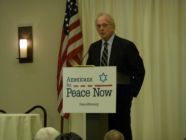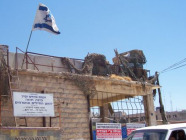Another Friday, another protest in Sheikh Jarrah.
Another Friday where Israeli police
react with fury and force, trying to bar and then break up the event, and
arresting peaceful protesters.
Another Friday and more
evidence that democracy - and key pillars of democracy like freedom of speech and freedom of association, let alone the freedom to protest peacefully - are
under threat in Israel.
When the Sheikh Jarrah protests first started an Israeli friend told me that they would never have any impact -- that Jerusalem is something that Israelis just can't think rationally about. He said that even though we are talking about settler activities in neighborhoods that few Israelis can find on a map, let alone ever visit, the average Israeli hears "Jerusalem" and stops listening.
I hope he is wrong. Because this is about more than settlers targeting houses in this one Palestinian neighborhood. Sheikh Jarrah is a microcosm of the entire Israeli-Palestinian conflict - as pointed out by Didi Remez in a
podcast he did with APN earlier this week, following his arrest in last week's protest. It is about Israeli actions and policies that are wholly inimical to peace. It is emblematic of the battle between those who believe in a negotiated peace -- for Israel's own sake -- and those who prefer the zero-sum logic of occupation, domination, and perpetual conflict.
In one neat little package the Sheikh Jarrah protests encompass the core issues at the heart of the Israeli-Palestinian conflict and the peace process: territory, settlements and borders, displacement of Palestinians, and of course, Jerusalem.
I have watched (from afar) these protests grow, week after week. I
have watched them gather more and more "mainstream" support, especially
in the face of the extraordinary actions of Israeli police. I hope my friend turns out to be wrong -- that Sheikh Jarrah will be the issue that focuses Israelis minds on what is really at stake and motivates them to action.


